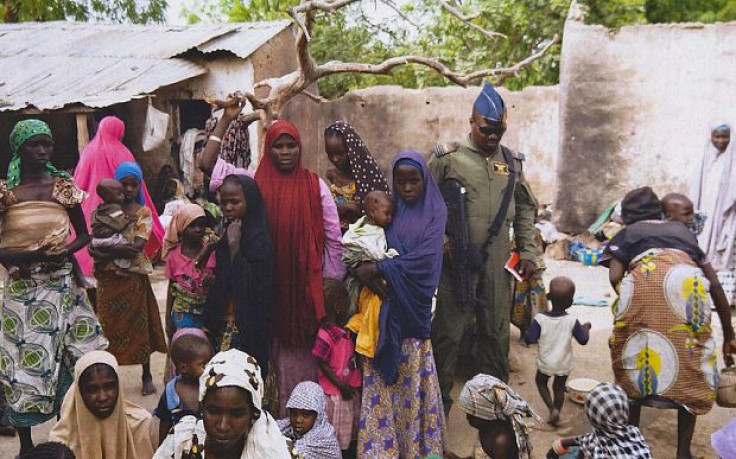Nigeria Refugee Camps See Over 100 Babies Delivered Daily Across Borno State

Nigerian officials are calling for local and international assistance as over 100 babies are being delivered daily in refugee camps across Borno state. Most of the pregnant women in the camps were displaced by the Boko Haram insurgency and raped by the militants, a Nigerian newspaper reported.
“We record an average of between five and six births in each of the 21 camps daily,” Alhaji Grema Terab, the executive chairman of Borno’s State Emergency Management Agency, told Leadership newspaper. “The state government is solely responsible for their daily feeding and provision of other needs.”
Terab said the birth rate was high in part because there were also a large number of twins delivered, particularly in the Federal Training Center camp where displaced Nigerians from Bama are taking refuge. The Borno state government plans to set up a medically-equipped delivery room in each of the 21 camps, Leadership newspaper reported.
Boko Haram militants have kidnapped more than 2,000 women and girls since the beginning of last year, many of whom were subject to sexual slavery. A large number of the women and girls rescued by the Nigerian army in Sambisa Forest in recent weeks were visibly pregnant. The terror group, which launched its insurgency in northern Nigeria six years ago, uses sexual violence and forcible impregnation as tactics of warfare, the Global Justice Center wrote in the New York Times. The United Nations Population Fund (UNFPA) was criticized by pro-life groups for suggesting that the pregnant women and girls in Nigeria be allowed to undergo abortions, which is illegal in most cases under local law.
Babatunde Osotimehin, executive director of the UNFPA, told Vanguard in Lagos the organization had seen more than 16,000 pregnancies and deliveries in northeast Nigeria in the past year. “In conflict and disasters, most people would only think of water and sanitation, provisions of tents and housing and food, which are all important. But women and girls have specific needs that nobody else looks after; it is only UNFPA that is doing this,” Osotimehin told Vanguard. “We will always have pregnant women, but nobody segregates the needs of the pregnant women, which are very important and different from the needs of the average community.”
The governor of Borno state, a Boko Haram hotbed, said he feared the women and girls raped by the Islamist extremists could be giving birth to future terrorists. "I am seriously worried with the fact that most women tend to hate and abandon children they deliver from rape. Now, the problem is that these children could go to the streets unattended to, they then lack access to food, health care and education. The result is that they could indeed inherit their fathers' (ideology) somehow," Gov. Kashim Shettima told government officials, according to the Associated Press.
© Copyright IBTimes 2024. All rights reserved.











